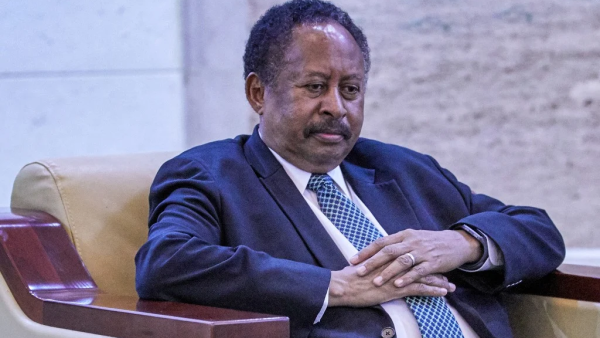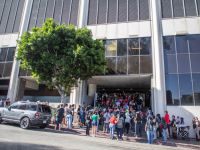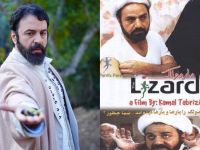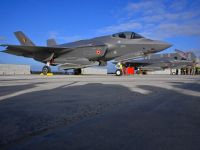He is back! Abdulla Hamdok is reinstated as Sudan’s Prime Minister after about three weeks of effectively being under house arrest. Today, things look as if it’s business-as-usual - a return to a semblance of normality. But is this so?
What happened in Sudan is incredulous, quite unbelievable. Hamdok was arrested on 25 October. After a few days of social media rants about ‘where is Hamdok’ the country’s military strongman Abdul Fattah Al Burhan owned up. Hamdok and his wife were staying at his house the general said.
#Sudan protests continue: Thousands of people took to the streets to protest against a deal signed by PM Hamdok and General Burhan. Since the military coup at least 42 people have been killed. We met the family of one of them.https://t.co/O0idtLeQnJ pic.twitter.com/drmj9DDeZe
— Mariel Müller (@_MarielMueller) November 28, 2021
Then a while later, Hamdok was taken back to his own house and remained there under guard till 21 November. There was no movement, it was like being kept under lock and key with him just disappearing from our radar screens. During this time, most of his civilian cabinet under the power-sharing deal signed in 2019 was also arrested with promises they would be let out which may be soon or it take a while. However, Hamdok made it clear that as premier, he would make it his priority to release all of the ministers. But this begs the question just who is really continuing to rule the country?
Hamdok himself was released because of two main factors: The Sudanese street which continued to boil in Khartoum and the other main cities like Omdurman and Bahri, and they paid a high price as 42 protesters were shot dead in those dark days. Their families and their supporters are now calling for recompense.
As well, the international arena started to put the pressure on Al Burhan right from the start. This was led by the US Secretary of State Anthony Blinken who warned Al Burhan the US and the World Bank would halt millions of dollars of aid and debt relief which worried the general who had already suspended the Sudan Sovereign Council, dismissed its members and declared a State of Emergency in the country.
US Senator @ChrisCoons has introduced a bill with sanctions to punish actors undermining democracy in Sudan. After PM Hamdok was reinstalled after being ousted in a coup last month, @ChrisCoons says he is encouraged by a "lessening of the forward movement of the coup leaders." pic.twitter.com/wV5LrNFhB9
— Christiane Amanpour (@amanpour) November 30, 2021
This is the background to the present crisis-laden situation which may have been averted at least for the time-being despite the tension in the street. It seems Al Burhan caved in to the pressure and reappointed Hamdok which is really an unprecedented step in the political arena of this part of the world despite the fact he previously said it was a ‘corrective step’ and he was committed to the democratic transition but which many saw, and labelled, as an outright military coup.
So is Hamdok really back in the driving seat? Will, maybe after a fashion, taking into account of the opposition, his previous friends in government, who are saying Hamdok is "whitewashing" the coup. And they could be right because we are yet to know about the state of emergency and the release of the ministers but what we do know is Hamdok and Burhan agreed on 14 points as part of moving the country forward.
But 12 ministers who belonged to the broad-based Forces of Freedom and Change (FFC) coalition and who heard of the new framework resigned immediately, stating the deal is a “sell out” and demanded Al Burhan and the military go back to the barracks. But this is not going to happen and many argue Al Burhan took this step to show the civilians the military will not be sidelined and which he probably well-proved his point.
The problem with Hamdok's argument that his deal with Burhan avoids bloodshed and stops the slide towards civil war is 1. the deal rewards the military's use/threats of violence. That's extortion. 2. The people didnt ask for the deal and are rejecting it. https://t.co/ONNfA93foF
— Cameron Hudson (@_hudsonc) November 28, 2021
Before 25 October many of the civilian ministers wanted to look into the finances of the military and the companies and properties they controlled in the country. This was through the Committee for Removal of Empowerment and Recovery of Public Funds which worried the military whose, especially its high-ranking officers, saw it as an attempt to undermine their status and impose greater control.
Thus, with latest developments it clearly conveyed to Hamdok and the rest of the ministers “who is boss”. The FFC, a coalition of different political parties and trade unionists, expressed this, its frustration and dismay at what happened but Hamdok wanted to take a much more pragmatic, practical line of how he was treated and dealt with besides the fact he said that he agreed to come back to avoid further bloodshed.
He rejects the view that he was humiliated by Al Burhan but said that he came back to rule as well because of the different economic files that are still outstanding including those that related to the World Bank which require time to “filter” through the economy and its diversified sectors.
Khartoum Downtown marches against Burhan Hamdok agreement and demands the civilian rule.#nov30march#مليونية30نوفمبر pic.twitter.com/Ra68deSvdq
— Mohamed Mustafa (@Moh_Gamea) November 30, 2021
The other issue is a question related to his personality and that is the fact that Hamdok is a trained economist who has long worked in regional organizations related to the African continent. That is why, and as well, many Africans were angry when they heard that Hamdok had been put under house arrest.
On the other hand, and as a final point, analysts believe that there is an external angle to the Hamdok arrest that is related to Egypt who are not pleased with the premier because of his stand on the Grand Ethiopian Renaissance Dam related to the Nile which has long become a complicated river that involves Khartoum and more so Cairo that is upset about water share rights. Hamdok is reputed to have good personal relations with members of the Ethiopian government and this is displeasing the politicians in Cairo.
But this angle gets back to Al Burhan who is argued to have close relations with the military in Cairo and has long fostered ties with Saudi Arabia and the United Arab Emirates especially during the Yemeni conflict after 2015.
#Sudan| In its first practical test after the political agreement that reinstated Abdullah Hamdok as prime minister and pledged to respect the right to demonstrate, the de-facto authority again repudiated its pledges and suppressed today's protests leaving 20 injured. pic.twitter.com/BrJXNXLaJc
— Euro-Med Monitor (@EuroMedHR) November 30, 2021
Aside from the external angle, it would seem Hamdok still has a lot on his plate at the moment. His return to power, no matter what justification he has for this step, he will need to muster much persuasion to convince the street and the FFC that he means well. They are continuing to protest about the deal, so he has a long road ahead. He is on record of stating that the parties - including the broad-based Islamist Umma Party with lots of support - will eventually come around. But until they do, he will likely to continue to face much headache.
Besides that, from now on he will need to keep watching his back from Al Burhan in the dual civilian-military framework of power, and indeed, to pander to the men-in-uniform, and this is what is worrying to the rest of society.







